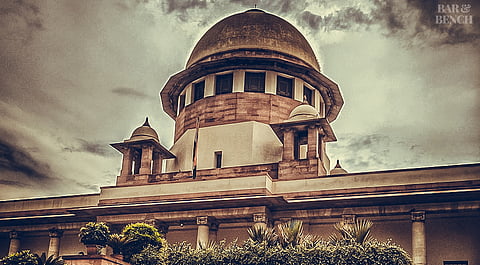
- Latest Legal News
- News
- Dealstreet
- Viewpoint
- Columns
- Interviews
- Law School
- Legal Jobs
- हिंदी
- ಕನ್ನಡ

On Friday morning, the country woke up to news that the Hyderabad Police had killed the four accused of raping and murdering 26-year-old ‘Disha’ in an encounter killing.
Even as the public is divided on whether justice has been served or evaded, and the National Human Rights Commission (NHRC) has taken suo motu cognisance over the incident, it may be relevant to recount what a Division Bench of the Supreme Court had to say on the subject of extra-judicial killings, commonly referred to as encounter killings, in the 2014 case of PUCL v State of Maharashtra.
The Court was dealing with pleas filed by the People’s Union of Civil Liberties (PUCL) questioning the correctness of over 90 encounter killings by the Mumbai Police between 1995 and 1997. Last year, the NGO had also approached the Supreme Court raising concern about the rate of encounter killings in Uttar Pradesh.
Even State cannot violate right to life and obligation to follow procedure established by law under Article 21
In a detailed order passed on September 23, 2014, the Bench of then Chief Justice RM Lodha and Justice RF Nariman firstly highlighted that the right to life under Article 21 is available to every person and that even the State has no authority to violate that right.
Pertinent observations made to this effect in the judgment authored by Justice (retd.) Lodha include:
“Article 21 of the Constitution of India guarantees “right to live with human dignity”. Any violation of human rights is viewed seriously by this Court as right to life is the most precious right guaranteed by Article 21 of the Constitution. The guarantee by Article 21 is available to every person and even the State has no authority to violate that right …
… his Court has stated time and again that Article 21 confers sacred and cherished right under the Constitution which cannot be violated, except according to procedure established by law. Article 21 guarantees personal liberty to every single person in the country which includes the right to live with human dignity.”
Encounter killings must be investigated independently as they affect credibility of Rule of Law
The Bench proceeded to highlight why it is necessary that encounter killings by the police must be investigated independently.
“… killings in police encounters require independent investigation. The killings in police encounters affect the credibility of the rule of law and the administration of the criminal justice system.“
Although the Bench clarified that they were aware of the difficult and delicate task that the police are expected to perform in tackling crime, it emphasised that even criminals must be brought to justice by following the rule of law.
“We are not oblivious of the fact that police in India has to perform a difficult and delicate task, particularly, when many hardcore criminals, like, extremists, terrorists, drug peddlers, smugglers who have organized gangs, have taken strong roots in the society but then such criminals must be dealt with by the police in an efficient and effective manner so as to bring them to justice by following rule of law.“
To ensure accountability, the Bench decided that guidelines were warranted to ensure the independent investigation of encounter killings by the police.
Guidelines issued for the investigation of encounter killings
After perusing suggestions made by the Bombay High Court, PUCL (through Advocate Prashant Bhushan), submissions by Amicus Curiae Gopal Sankaranarayanan, and the NHRC, among others, the Supreme Court eventually issued the following guidelines:
The Supreme Court added that these guidelines would also be applicable, as far as possible, to cases of grievous injury due to police encounter as well.
[Read the order dated September 23, 2014 here]